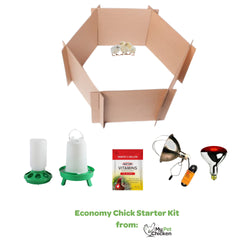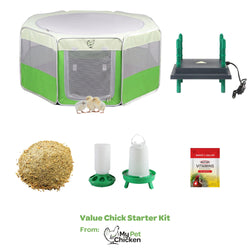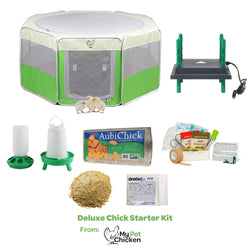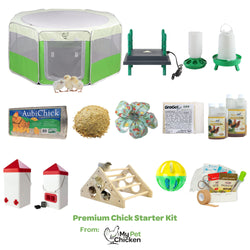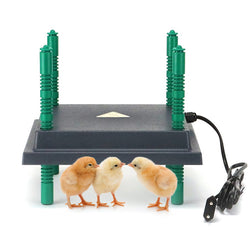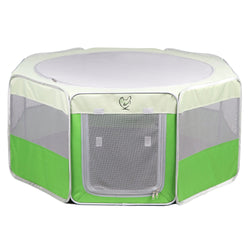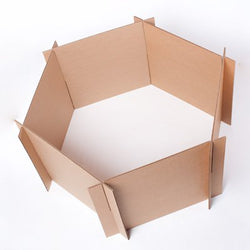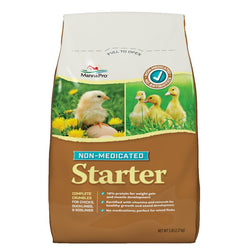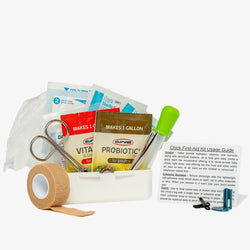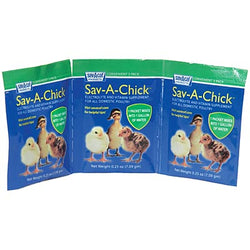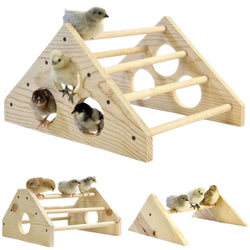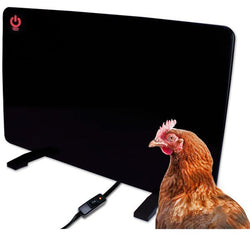How can you send chicks through the mail when they sometimes die?
Back to blog
And if there is a risk that some chicks die on the way, then how can you justify staying in business?|Of course we hate it when chicks die along the way; every bird is an individual, and every loss is a tragedy. However, when it comes to shipping baby chicks, the risk of loss is small; in fact, it tends to be less than the risk of losing baby chicks you hatched at home in your home incubator. Even broody hens lose chicks. The truth is that we see more chicks die due to a lack of adequate care at their destinations than we see die during shipping.
If you don't want to risk the loss of any baby chicks at all during a shipping process, then there are two steps you'll need to take. The first one is this: don't buy chicks. You may think that buying from your local feed store is the perfect solution because the chicks don't have to ship from the store to your home... therefore, you conclude, there will be no shipping losses. But remember that feed stores buy their chicks from hatcheries, too. That means that at a feed store, it's just that you don't see the losses, not that they aren't there.
The second step is this: stop buying eggs. Think about it: those factory farms that produce eggs for your grocery store...? Well, they *also* buy their chicks from hatcheries (although typically not My Pet Chicken, since we cater to rare breed enthusiasts and small flock owners). That means chicks occasionally die along the way to the factory farms just as they may die along the way to you. When you buy eggs at the grocery store, you are simply having someone else deal with the losses for you. Worse, those poor factory farm chickens are then condemned to a life of utter misery.
The truth is that increasing the ability of families and individuals to create their own small backyard flocks also decreases our reliance on inhumane factory egg farms. At My Pet Chicken, we believe chickens should be provided with humane living conditions where they can be happy.
When chicks are shipped to loving homes, any little bird who arrives weak gets extra care and attention: loving owners may separate a weak chick for a while to give her time to recover from the journey before having to compete for feeder space. They may offer a little sugar water, plain yogurt or crushed boiled egg yolk as a boost. They can individually check for pasty butt, and take care of it before it even becomes a problem. Generally speaking, small flock owners go to great lengths to make sure any weak chicks are encouraged to eat and drink and that they are protected from their more energetic brethren until they are stronger. And that loving care lasts for the lifetime of the bird; pet chicken owners genuinely love their birds, and when necessary will get them the same sort of veterinary care other pets like cats and dogs receive. By contrast, at factory egg farms, dead chicks are just occasionally (and we do mean just occasionally) removed as they die. Adults at factory farms fare far worse. Watch this video about the conditions in factory egg farms, if you have a strong stomach, and contrast this treatment to the treatment you see in the videos of small home flocks:
So, when we get asked how we justify staying in business, it's really a no-brainer. We feel genuinely good about the business we do and the effect it has on the egg industry. We love chickens, and we love knowing that when they go to prepared adopters, they are going to people who want to give their birds a genuinely good life--a pet life. Small flock owners provide more than just "good" homes for their chickens: they provide genuine love and affection for their flocks.
Chickens in backyard flocks typically have access to grass and sunshine, to bugs and dust baths, to space and roosts and private nests. Chickens are not disposable commodities to backyard flock owners like they are at factory farms. Every backyard flock we help establish is a blow to the factory egg farm industry, so by specializing in small flocks, we put pressure on that industry. Hens kept in backyard flocks are often even spoiled--and that's as it should be!
Despite the risk of losses during shipping, the risk of NOT encouraging the proliferation of humanely cared for backyard flocks is much worse. Without backyard flocks, we'd all be reliant on factory farms for our eggs--eggs that are not only inhumanely produced, but are also less healthy than eggs laid by birds with access to pasture. And we don't believe humans will simply stop eating eggs anytime soon. Maybe some day, small backyard flocks will be so ubiquitous that mail order hatcheries will all go out of business. That would be great! But until that day comes, ordering a small flock of birds from a mail order hatchery, despite the small risk of a loss during shipping, might be the single most humane thing you can do for chickens.
If you don't want to risk the loss of any baby chicks at all during a shipping process, then there are two steps you'll need to take. The first one is this: don't buy chicks. You may think that buying from your local feed store is the perfect solution because the chicks don't have to ship from the store to your home... therefore, you conclude, there will be no shipping losses. But remember that feed stores buy their chicks from hatcheries, too. That means that at a feed store, it's just that you don't see the losses, not that they aren't there.
The second step is this: stop buying eggs. Think about it: those factory farms that produce eggs for your grocery store...? Well, they *also* buy their chicks from hatcheries (although typically not My Pet Chicken, since we cater to rare breed enthusiasts and small flock owners). That means chicks occasionally die along the way to the factory farms just as they may die along the way to you. When you buy eggs at the grocery store, you are simply having someone else deal with the losses for you. Worse, those poor factory farm chickens are then condemned to a life of utter misery.
The truth is that increasing the ability of families and individuals to create their own small backyard flocks also decreases our reliance on inhumane factory egg farms. At My Pet Chicken, we believe chickens should be provided with humane living conditions where they can be happy.
When chicks are shipped to loving homes, any little bird who arrives weak gets extra care and attention: loving owners may separate a weak chick for a while to give her time to recover from the journey before having to compete for feeder space. They may offer a little sugar water, plain yogurt or crushed boiled egg yolk as a boost. They can individually check for pasty butt, and take care of it before it even becomes a problem. Generally speaking, small flock owners go to great lengths to make sure any weak chicks are encouraged to eat and drink and that they are protected from their more energetic brethren until they are stronger. And that loving care lasts for the lifetime of the bird; pet chicken owners genuinely love their birds, and when necessary will get them the same sort of veterinary care other pets like cats and dogs receive. By contrast, at factory egg farms, dead chicks are just occasionally (and we do mean just occasionally) removed as they die. Adults at factory farms fare far worse. Watch this video about the conditions in factory egg farms, if you have a strong stomach, and contrast this treatment to the treatment you see in the videos of small home flocks:
So, when we get asked how we justify staying in business, it's really a no-brainer. We feel genuinely good about the business we do and the effect it has on the egg industry. We love chickens, and we love knowing that when they go to prepared adopters, they are going to people who want to give their birds a genuinely good life--a pet life. Small flock owners provide more than just "good" homes for their chickens: they provide genuine love and affection for their flocks.
Chickens in backyard flocks typically have access to grass and sunshine, to bugs and dust baths, to space and roosts and private nests. Chickens are not disposable commodities to backyard flock owners like they are at factory farms. Every backyard flock we help establish is a blow to the factory egg farm industry, so by specializing in small flocks, we put pressure on that industry. Hens kept in backyard flocks are often even spoiled--and that's as it should be!
Despite the risk of losses during shipping, the risk of NOT encouraging the proliferation of humanely cared for backyard flocks is much worse. Without backyard flocks, we'd all be reliant on factory farms for our eggs--eggs that are not only inhumanely produced, but are also less healthy than eggs laid by birds with access to pasture. And we don't believe humans will simply stop eating eggs anytime soon. Maybe some day, small backyard flocks will be so ubiquitous that mail order hatcheries will all go out of business. That would be great! But until that day comes, ordering a small flock of birds from a mail order hatchery, despite the small risk of a loss during shipping, might be the single most humane thing you can do for chickens.
